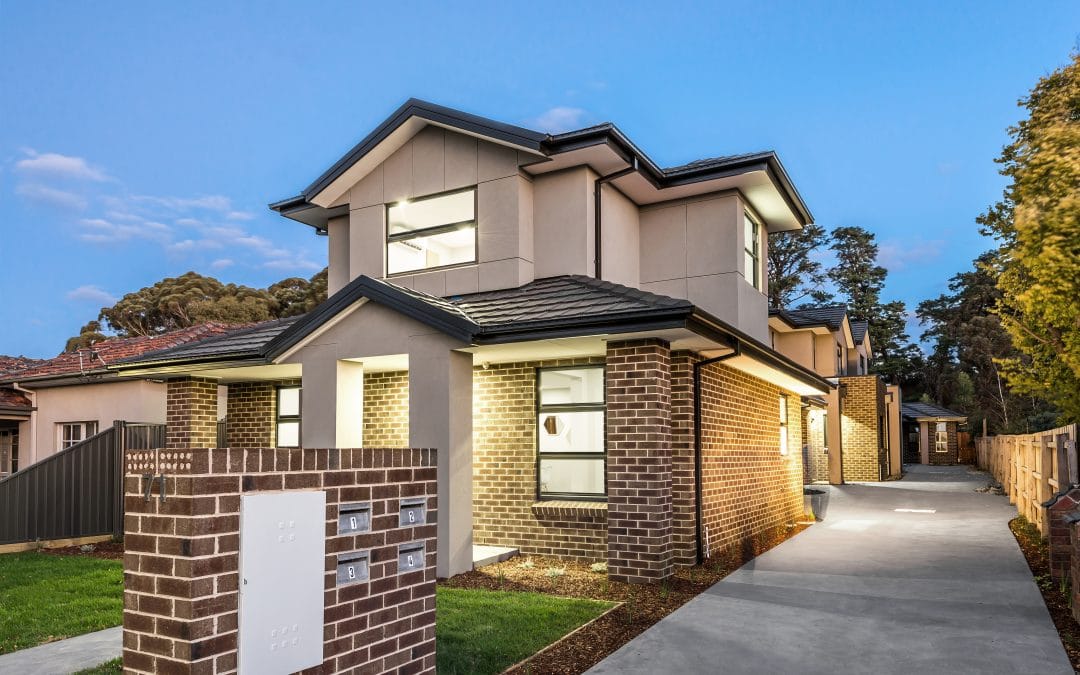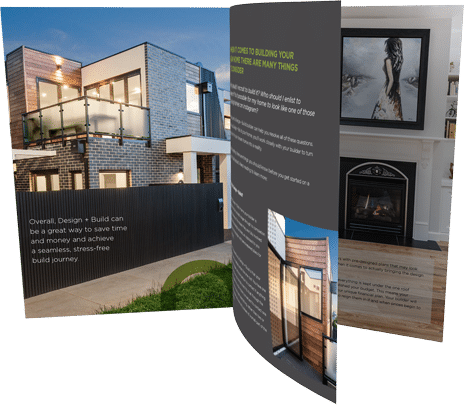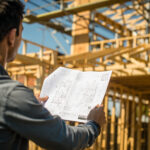Top tips for choosing a builder
For property owners who are new to the building process, constructing a home can be daunting.
There are multiple factors to contend with and a myriad of decisions to make right from the get-go. But among all the choices, the single most important will be selecting the right builder, because it will have implications for you and your family for years to come.
When you choose your builder, you are committing to a long-term, working relationship. The Design and Build process itself will probably last the best part of a year and you’ll want to minimise the hurdles while maximising the outcome.
In addition, there’s a good chance you’ll be living in your home for some time, and you don’t want it to be a lasting monument to a troubled association. As such, the criteria for choosing a builder is all important – and we’ve seen property owners make mistakes with this time and again.
To help, here’s our guide for selecting the right builder for you.
It’s all about you
Habit five in Steven Covey’s bestseller The 7 Habits of Highly Effective Peopleis: “Seek First To Understand, Then To Be Understood.” This is the principal you should look for in your prospective builder.
When working through the process, look for a contractor who makes the end result about you and your family’s needs. They should be asking plenty of questions about who will be living in the house, how it’s likely to be used and what you’re hoping to achieve with the build.
If you are interviewing a builder and they spend your first meeting talking about how great they are and how much money they’ll save you, be a little suspicious. They should, instead, be looking for ways to improve the outcome for you. You want a builder who is capable of achieving your goals first and foremost – then the Design and Build process will smoothly follow.
Professionalism early
Efficiency, delivery and openness are elements that should begin before you sign the contract.
Take note throughout the discussions and selection process on how the builder conducts their business. Are they returning calls and emails with answers to your questions? Are they delivering on the timelines they set out in terms of returning documentation? Talking of paperwork, are they handling the details accurately, or are you continually finding errors or blanks spaces that wouldn’t exist if the builder was taking due care.
In addition, ask plenty of question about the process of building your home. They should be able to simply, but knowledgeably, lead you through the journey from contract to handover, instilling confidence about their experience and ability to deliver.
Communication is key
For many clients, the ability to easily and effectively communicate with their builder is the number one requirement before signing on the dotted line. During the build, both you and your builder will have questions that need answering and changes that require joint decisions.
Make sure your prospective builder has processes in place to keep you informed of the build’s progress. In addition, they should give you plenty of notice about when decisions need to be made regards elements such as final fittings, selections, and colour choices.
Even more importantly, do they have a professional approach to addressing any concerns that arise? If you inspect the site and feel an element needs altering, is it easy to contact the builder and have a reasonable discussion? Do you feel they will champion your goals when there are delays with materials, or if a subcontractor’s work is not up to scratch? Being able to talk openly and freely about a build without conflict is essential to having a positive experience.
Do your research
There’s nothing like doing your own detective work to help set your mind at ease, and a good builder will invite scrutiny.
Ask the builder for a list of recent projects they’ve completed so you can take a drive past. See if they can show you some of their builds that are currently underway too, so you can visit a site and get a feel for the operation. In addition, seek references from past clients so you can make a call and discuss their experience.
Finally, each state and territory has a body controlling builder’s licensing. They also keep track of contractors who’ve run foul with clients. Make sure you check in with governing groups to ensure your prospective builder has a clean performance record.
Money is the last thing
Of course, it’s important to stay within budget, but experience shows it should never be your top priority when choosing a builder. In most cases, budget builds are cheaper for a reason. As such, paying what might appear to be a little extra on paper for a great builder at the start of the project can end up saving you plenty by the end.
For example, a low-cost builder will likely be presenting a ‘base price’ for your home which will exclude many finishing items, or maybe work on minimum fit-out numbers (e.g. one powerpoint per room). They may also be working off their own well-used set of inflexible floor plans.
The downside comes when you want to make changes or additions. These variations can end up costing you plenty and add to the time and complexity of the build. Instead, concentrate on choosing a builder with whom you have confidence and a shared sense of what success will be when handover day arrives.
Building a home can be one of the most rewarding and satisfying experiences you’ll ever have – so long as you are smart from the start and choose your builder wisely.






